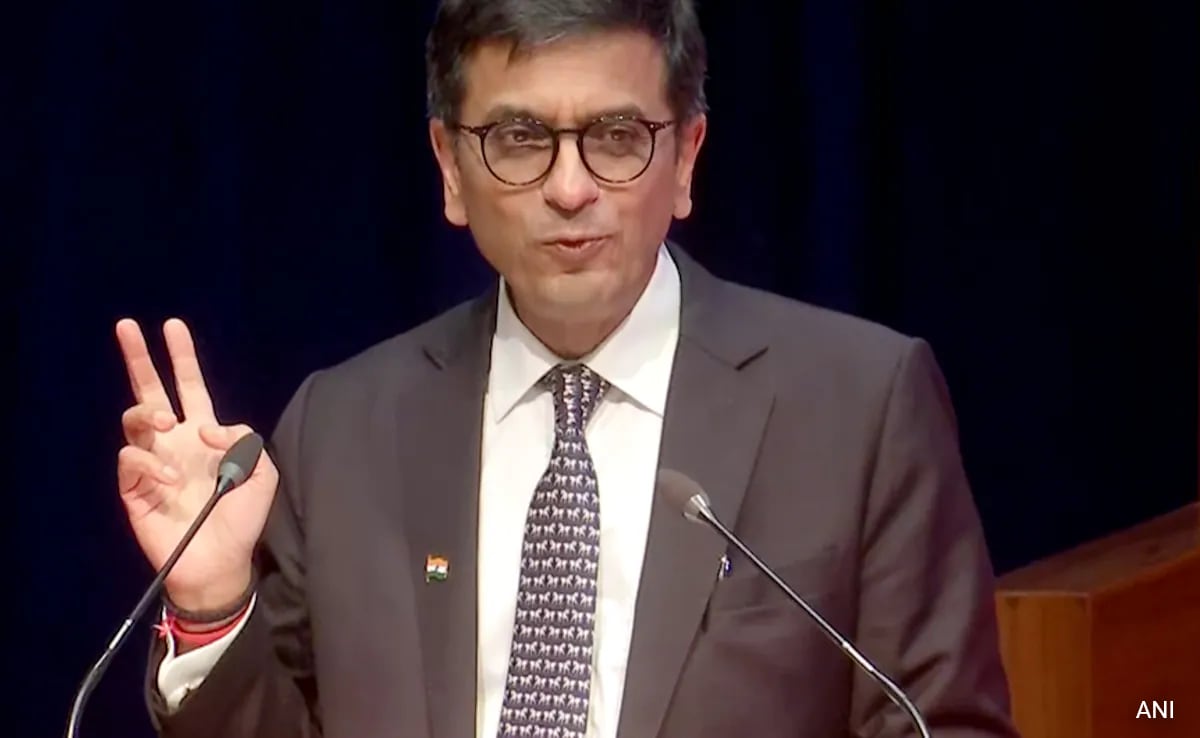
Bangladesh’s Chief Justice Obaidul Hassan chaired the event.
Dhaka:
Chief Justice of India D Y Chandrachud on Saturday said both India and Bangladesh share the tradition of constitutional and judicial systems largely aiming to ensure stability and both nations recognised their constitutions as “living documents.” “Our shared tradition aims to ensure stability, but when stability is desired, the stability must never be confused with stagnation,” Chandrachud said as he spoke at the valedictory function of a two-day conference here in the presence of Bangladesh Prime Minister Sheikh Hasina, who was the chief guest.
“We recognise our constitutions are living documents. The constitutions of Bangladesh and India proclaim that they are ‘given to the people by the people themselves’ as citizens of sovereign nations,” Chandrachud said.
Bangladesh’s Chief Justice Obaidul Hassan chaired the event. Bangladesh’s apex court judges took part in the conference, which drew many jurists, senior lawyers, and government leaders including Law Minister Anisul Huq.
Earlier on Friday, Bangladesh President Mohammad Shahabuddin opened the two-day conference on ‘South Asian Constitutional Courts in the Twenty-First Century: Lessons from Bangladesh and India.’ CJI Chandrachud said the Indian and Bangladeshi court systems should encourage the enhanced practice of mediation for dispute resolution, discarding “adversarial litigations” and added, “The adversarial litigation in India and Bangladesh is a colonial import (where) one person wins and another person loses in the court.” There were other alternative forms of dispute resolution such as mediation which was the “traditional form of dispute resolution in our society” and asserted that “it is important to build on what we have.” The CJI said the mediation reappeared with greater validity to face modern-day challenges like matrimonial disputes while the system suits the South Asian social norms.
Chandrachud pointed out how the judge’s role in the post-colonial era was undergoing a change (in both countries) as he said, “Our traditional role is to resolve a dispute between ‘A’ and ‘B’ but now the judges should as well perform a role of being facilitators. In colonial times, judges found completely different functions.” “Today, we need to ensure that we look into the needs of our society, ensure social growth and social progress by allowing our marginalised groups to come to the mainstream,” he said.
Chandrachud added the proclamation meant that the constitutions were not like that of the colonial period charter which was more inclined to consolidate the power of colonial rulers than the welfare of the people.
He also drew attention to the fact that the constitutional courts of India and Bangladesh continued to closely follow and share each others’ decisions and verdicts on common issues such as fundamental rights, equality of rights, and doctrines on death penalty reference or public interest litigation following identical principles.
“(But) as we aggregate our similarities and identify our divergences, we must strike a delicate balance. We must neither gloss over details nor fixate on them,” he said.
In her address. Prime Minister Hasina said her government has made the judiciary totally independent, separating it from the administration by allocating a separate budget for it.
“Apart from ensuring the independence of the judiciary, the government has made the Election Commission independent for the sake of the election system so that it could ensure the rights of the people properly,” Bangladesh Samgbad Sanstha (BSS), the official news agency reported Hasina as saying.
The prime minister also said she wants the people of her country to get justice and added, “Like us, they, as if, aren’t to be subjected to injustice. So, the rights of getting justice and democratic, economic, social and cultural rights of the countrymen will have to be ensured.”
(Except for the headline, this story has not been edited by NDTV staff and is published from a syndicated feed.)




